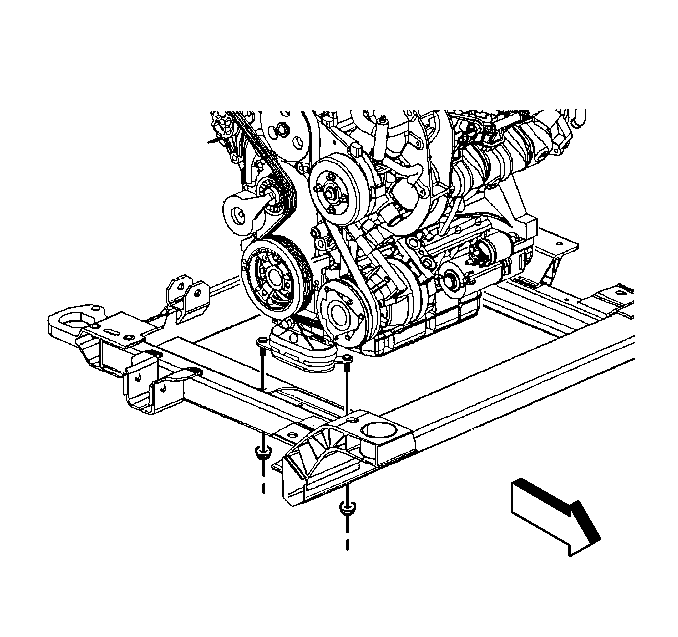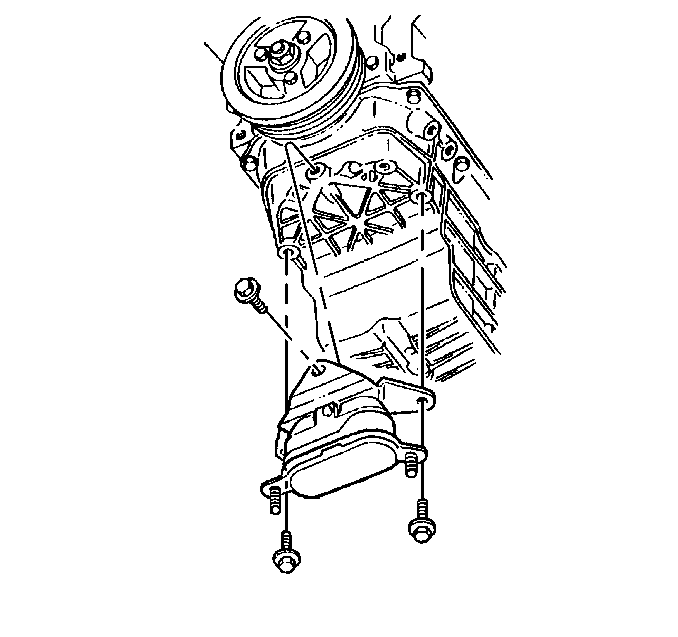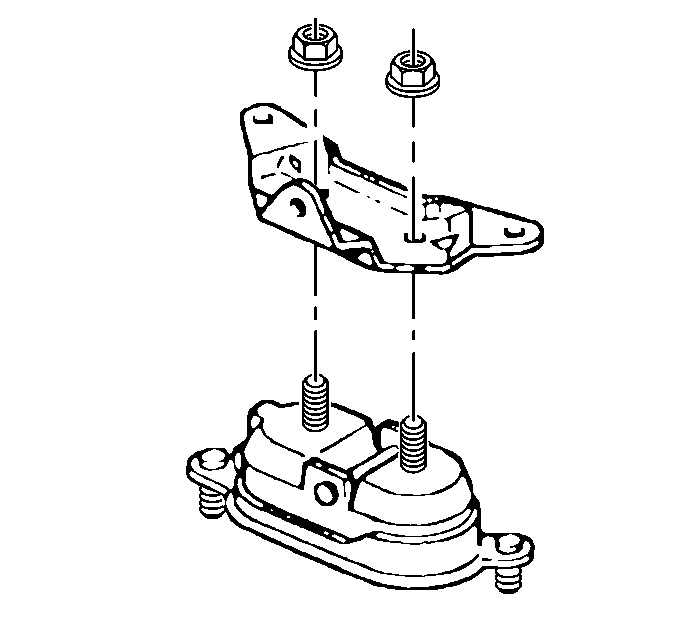Tools Required
| • | J 28467-90A Engine Support Adapters |
| • | J 28467-B Universal Engine Support Fixture |
| • | J 36462-A Engine Support Adapter Leg Set |
Removal Procedure
- Disconnect the battery ground (negative) cable. Refer to Battery Negative Cable Disconnection and Connection in Engine Electrical.
- Remove the throttle body air inlet duct.
- Remove the engine mount struts. Refer to Engine Mount Strut Replacement - Left Side and Engine Mount Strut Replacement - Right Side .
- Raise and suitably support the vehicle. Refer to Lifting and Jacking the Vehicle in General information.
- Remove the three-way catalytic converter pipe from the right (rear) exhaust manifold. Refer to Catalytic Converter Replacement in Engine Exhaust.
- Remove the right front wheel and tire. Refer to Tire and Wheel Removal and Installation in Tires and Wheels.
- Remove the right engine splash shield. Refer to Engine Splash Shield Replacement in Body Front End.
- Remove the engine mount lower nuts.
- Raise the engine, using the universal engine support fixture. Refer to Engine Support Fixture .
- Remove the engine mount bracket-to-oil pan bolts.
- Remove the engine mount and the engine mount bracket.
- Remove the engine mount upper nuts.
- Remove the engine mount from the engine mount bracket.



Installation Procedure
- Install the engine mount to the engine mount bracket.
- Install the engine mount upper nuts.
- Install the engine mount bracket with the engine mount to the oil pan.
- Install the engine mount bracket-to-oil pan bolts.
- Lower the Vehicle.
- Lower the engine.
- Raise and suitably support the vehicle. Refer to Lifting and Jacking the Vehicle in General information.
- Install the engine mount lower nuts.
- Install the right engine splash shield. Refer to Engine Splash Shield Replacement in Body Front End.
- Install the right front wheel and tire. Refer to Tire and Wheel Removal and Installation in Tires and Wheels.
- Connect the three-way catalytic converter pipe to the right (rear) exhaust manifold. Refer to Catalytic Converter Replacement in Engine Exhaust.
- Lower the vehicle.
- Remove the engine support fixture.
- Install the engine mount struts. Refer to Engine Mount Strut Replacement - Left Side and Engine Mount Strut Replacement - Right Side .
- Install the throttle body air inlet duct.
- Connect the battery ground (negative) cable. Refer to Battery Negative Cable Disconnection and Connection in Engine Electrical.

Notice: Use the correct fastener in the correct location. Replacement fasteners must be the correct part number for that application. Fasteners requiring replacement or fasteners requiring the use of thread locking compound or sealant are identified in the service procedure. Do not use paints, lubricants, or corrosion inhibitors on fasteners or fastener joint surfaces unless specified. These coatings affect fastener torque and joint clamping force and may damage the fastener. Use the correct tightening sequence and specifications when installing fasteners in order to avoid damage to parts and systems.
Tighten
Tighten the engine mount upper nuts to 47 N·m (35 lb ft).

Tighten
Tighten the engine mount bracket bolts to 58 N·m (43 lb ft).

Tighten
Tighten the engine mount lower nuts to 43 N·m (32 lb ft).
